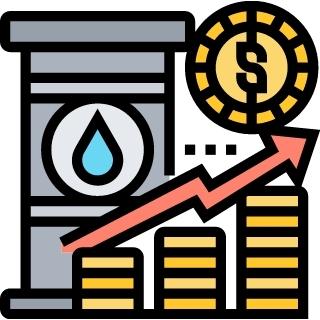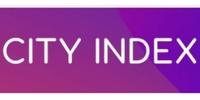Next on the practical spread betting checklist is commodities, which represent one of the largest markets for investment and trading globally. Commodities is quite a broad, umbrella term, which takes in the markets for a range of raw materials – from gold and silver through to steel and coffee, commodities represent a series of some of the only mainstream alternative markets to the main stock markets which are traded in any serious volume. Traditionally, those investing in commodities would physically engage with the markets, physically buying certain quantities of the relevant commodity in order to speculate on their future price. This often results in warehousing costs or freight costs, which have to be offset against the upside gains of any trade, and effectively rules out commodity trading for the retail investor.
Popular Commodities for Spread Betting
Oil & Gas
Market
Spread Betting on Oil & Gas
Gold & Silver
Market
Silver & Gold Spread Betting
Wheat & Other Crops
Market
Wheat Spread Betting

Recommended Commodities Spread Betting Brokers



These brokers are best suited for commodities spread trading. See all spread betting platforms.
Why Spread Bet on Commodities
Spread betting compares favourably to the traditional means of physically buying commodity stock in that it provides a high-leverage, low-cost, easy access for ordinary traders looking to speculate on the commodity markets. In fact, financial spread betting was created for this very purpose – to enable traders to speculate on volatile gold prices without having to invest directly. Whereas investing directly in oil or steel requires substantial capital to make an impact, spread betting positions can start from as little as £1 a point, opening the markets to a whole new class of trader who would otherwise be cut off from the profit potential in commodities.
From a hassle perspective, traders can cut out much of the difficulties and struggles associated with warehousing and transport through spread betting on the markets, in addition to gaining the additional leverage afforded by the spread trading mechanism. The high leverage allows minor fluctuations to be reflected as more substantial capital movements, while the sheer ease with which spread betting transactions take place make it the perfect alternative to trading directly in often cumbersome, physical goods. And given that commodities markets tend to be particularly volatile, the combination of spread betting on the basis of commodities markets works well in terms of delivering satisfactory returns quickly and cost-efficiently.
How to Spread Bet On Commodities
When it comes down to trading commodities, spread betting has numerous advantages over dealing directly. Arguably the only reason for dealing directly in commodities is where you anticipate using the raw materials – for instance, a petrochemical company may and indeed will buy oil as a raw material for their production processes, and in doing so will participate in the markets. The main distinction from a practical and legal sense is ownership – a spread betting transaction cannot be resold, and has no inherent value. For the ordinary trader looking to capitalise purely on price movements in the commodities markets, spread betting is arguably the most advisable trading style, combining cost-effective, high degrees of leverage with minimal hassle and fuss.
The commodities markets are driven solely by supply and demand for the base commodity, and this tends to be closely aligned to current affairs. If the US has a particularly weak wheat harvest, wheat prices will rise because wheat will become more scarce. If a civil war breaks out in a major oil producing nation, oil prices will be likely to rise if there are concerns over supply. An understanding of basic economics and the interplay of current affairs and business presents logical arguments for trading on both the buy and sell sides of the fence. Look for indicators that might spell a surge in demand or an impact in supply – while the majority of relevant factors will fall supply-side, this can point to trades in either direction, and keeping a close eye on the factors relevant to individual commodities markets will help best inform your trading decisions.

